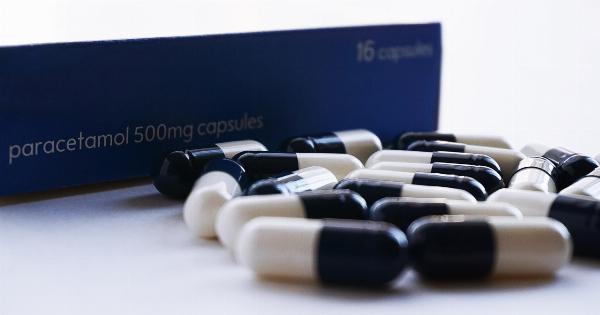Vitamins are essential nutrients needed by the body to function properly. They are responsible for various bodily processes and play a crucial role in maintaining good health.
However, when the body lacks these vital nutrients, it can lead to a condition known as avitaminosis. Avitaminosis occurs when there is a deficiency or absence of one or more vitamins in the body.
Avitaminosis can have a significant impact on a person’s health, and it is important to be able to recognize the signs and symptoms of this condition.
In this article, we will discuss eight common signs of avitaminosis, along with their images, to help you identify and address potential deficiencies.
1. Pale or Yellowish Skin
A lack of certain vitamins, particularly vitamin B12 and folic acid, can cause pale or yellowish skin. These vitamins are important for the production of red blood cells and keeping your skin healthy.
When there is a deficiency, it can result in paleness or a yellow tint to the skin.

2. Brittle Nails and Hair
Vitamins such as biotin, vitamin A, and vitamin C are crucial for maintaining strong and healthy nails and hair. Deficiencies in these vitamins can cause your nails to become brittle, weak, and prone to breakage.
Additionally, your hair may become dry, dull, and more susceptible to damage.

3. Poor Night Vision
Vitamin A is essential for maintaining good vision, particularly in low light conditions. A deficiency in this vitamin can lead to poor night vision or difficulty seeing in dimly lit settings.
This is because vitamin A plays a key role in producing the pigment in the retina that allows us to see in low light.

4. Mouth Ulcers and Cracks
Vitamin B-complex, particularly vitamin B2 (riboflavin) and vitamin B3 (niacin), plays a crucial role in oral health. Deficiencies in these vitamins can result in mouth ulcers, cracks in the corners of the mouth, and a sore or inflamed tongue.
If you frequently experience these symptoms, it may indicate a deficiency of these vitamins.

5. Slow Wound Healing
Vitamin C is a key nutrient required for the synthesis of collagen, a protein necessary for wound healing.
A deficiency in vitamin C can lead to slow wound healing, increased susceptibility to infections, and the development of bedsores or other skin-related issues. If you notice that your wounds take longer to heal than usual, it may indicate a deficiency in this vital vitamin.

6. Muscle Weakness and Cramps
Vitamin D is important for maintaining healthy muscles and bones. A deficiency in this vitamin can lead to muscle weakness, muscle cramps, and general fatigue.
If you frequently experience these symptoms, especially in conjunction with bone pain, it may be an indication of a vitamin D deficiency.

7. Bleeding Gums
Vitamin K plays a vital role in blood clotting. A deficiency in this vitamin can lead to bleeding gums, easy bruising, and prolonged bleeding from even minor cuts or injuries.
If you notice that your gums bleed easily, it may be a sign that your body lacks sufficient vitamin K.

8. Fatigue and Weakness
A lack of several vitamins, including vitamin B12, iron, and magnesium, can cause fatigue, weakness, and a general feeling of low energy. These vitamins and minerals are essential for proper energy metabolism in the body.
If you often feel tired and weak, despite getting enough rest and sleep, it may indicate a deficiency of these vital nutrients.

Recognizing the signs and symptoms of avitaminosis is essential for maintaining optimal health. If you notice any of these eight signs, it is important to consult a healthcare professional for a proper diagnosis and treatment.
In some cases, supplementation or dietary changes may be necessary to correct the deficiency and restore your body’s balance of vitamins.




























